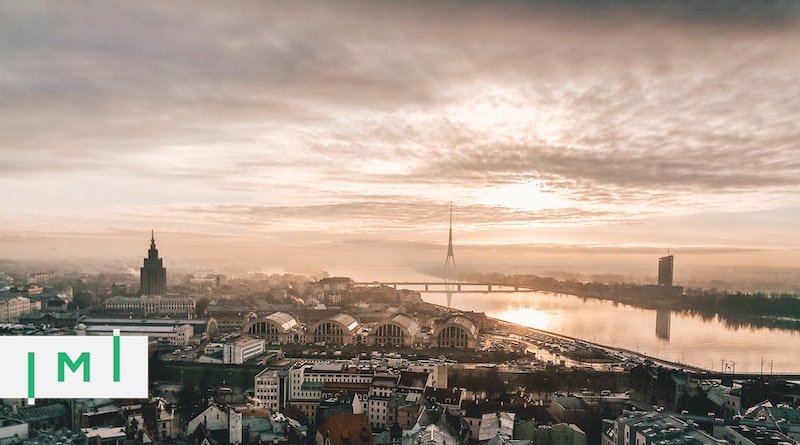The Protracted Demise of Latvia’s Golden Visa
Once first among its European equals, Latvia’s golden visa has languished since 2014. Of the roughly EUR 1.5 billion the program has made since opening in 2010, EUR 1.4 billion entered prior to July 2016.
Last week, Latvia’s Office of Citizenship and Migration Affairs released data on its approvals under the country’s golden visa program – one of the continent’s oldest such schemes – covering the first six months of 2020. The numbers make for cheerless reading; so far this year, it’s approved an average of five main applicants a month, raising less than EUR 9 million during the period.
On a year-to-year basis, this represents a 67% drop in approvals from the first half of 2019. Certainly, much of that reduction must be chalked up to the pandemic but, unlike the Greek golden visa (which had been on a consistent upward trend right up until the viral outbreak, one that’s likely to resume once circumstances normalize), the Latvian program’s poor performance over the last several years is rooted in policy choices rather than events beyond the government’s control.
Latvia’s 2020 numbers appear all the more dismal when viewed in light of the program’s modern history. As recently as 2014, Latvia’s golden visa approved nearly 2,500 main applicants and raised almost half a billion euros in a single year.
Autopsy
How did Latvia’s program go from having 2,395 main applicants in 2014 to a mere 148 just five years later (and just 30 so far in 2020)?
The immediate cause was the September 2014 increase in the program’s real estate investment amount, from roughly EUR 142,000 in urban areas (Latvia only adopted the Euro in 2014) and half that amount in rural regions, to today’s EUR 250,000 mandated minimum value. This policy change saw interest in the program plummet almost instantly.
But rising real estate investment requirements alone could not explain the drop; at 250,000 euros, Latvia’s property investment option was still at the lower end of the range in Europe. Visas in Latvia, furthermore, were (and are) still available for as little as a EUR 50,000 investment in share capital.
In 2016, the government also made source-of-funds verification procedures more rigorous, a move that – while advisable – disqualified a significant chunk of its core applicant groups from the former Soviet Union. The government itself conceded in a 2017 report that the tightening of background checks had been among the primary causes of the falling application volume and, also, of reduced investment amounts.
But what really killed the Latvian golden visa was the advent of southern European competitors that offered, essentially, the same benefits (immediate temporary residency in the EU, a road to permanent residency and, eventually, to citizenship) but at terms more suited to absentee (i.e., “paper-only”) resident investors.
When it first launched, in 2010, Latvia was virtually alone among EU countries in offering a golden visa. It’s true that the UK and Gibraltar also offered EU residency by investment at the time, but at a far higher price point.
In 2013, however, three new EU-based golden visa programs entered the fray: Spain, Greece, and Portugal. And while Latvia demands prospective applicants for permanent residency physically reside in the country for at least four out of the last five years, its Mediterranean peers require only a few days a year (and Greece requires no physical presence at all).
All three Mediterranean golden visas offer a clear and uncomplicated path to permanent residency, while Latvia will only bestow such a status on those willing and able to learn the Latvian language, which in itself is no mean feat, even for those who do live in the country for several years on a full-time basis.
As for graduating to citizenship status, Latvia will only let permanent residents who have lived in the country for ten consecutive years proceed to that stage. Greece and Spain stipulate similarly lengthy residency requirements, while Portugal will naturalize even golden visa investors who have spent a mere 35 days in the country over a five-year period.
To be fair, even Portugal demands that you know a little of its language before you can obtain permanent residency, but the threshold for mastering “do you know the way to the closest pharmacy” is considerably lower in Portuguese than in Latvian, a tongue with few close relatives.
Latvian authorities have demonstrated little interest in keeping up with the changing market dynamics among Europe’s golden visas. While Greece and Portugal have steadily worked to enhance the competitiveness of their respective programs, Latvian authorities, in October 2017, introduced a EUR 5,000 fee for residence permit renewals. During a parliamentary hearing in 2017, MP Janis Adamsons indicated the writing on the wall was clear: “The program will die,” he said.
Christian Henrik Nesheim is the founder and editor of Investment Migration Insider, the #1 magazine – online or offline – for residency and citizenship by investment. He is an internationally recognized expert, speaker, documentary producer, and writer on the subject of investment migration, whose work is cited in the Economist, Bloomberg, Fortune, Forbes, Newsweek, and Business Insider. Norwegian by birth, Christian has spent the last 16 years in the United States, China, Spain, and Portugal.



